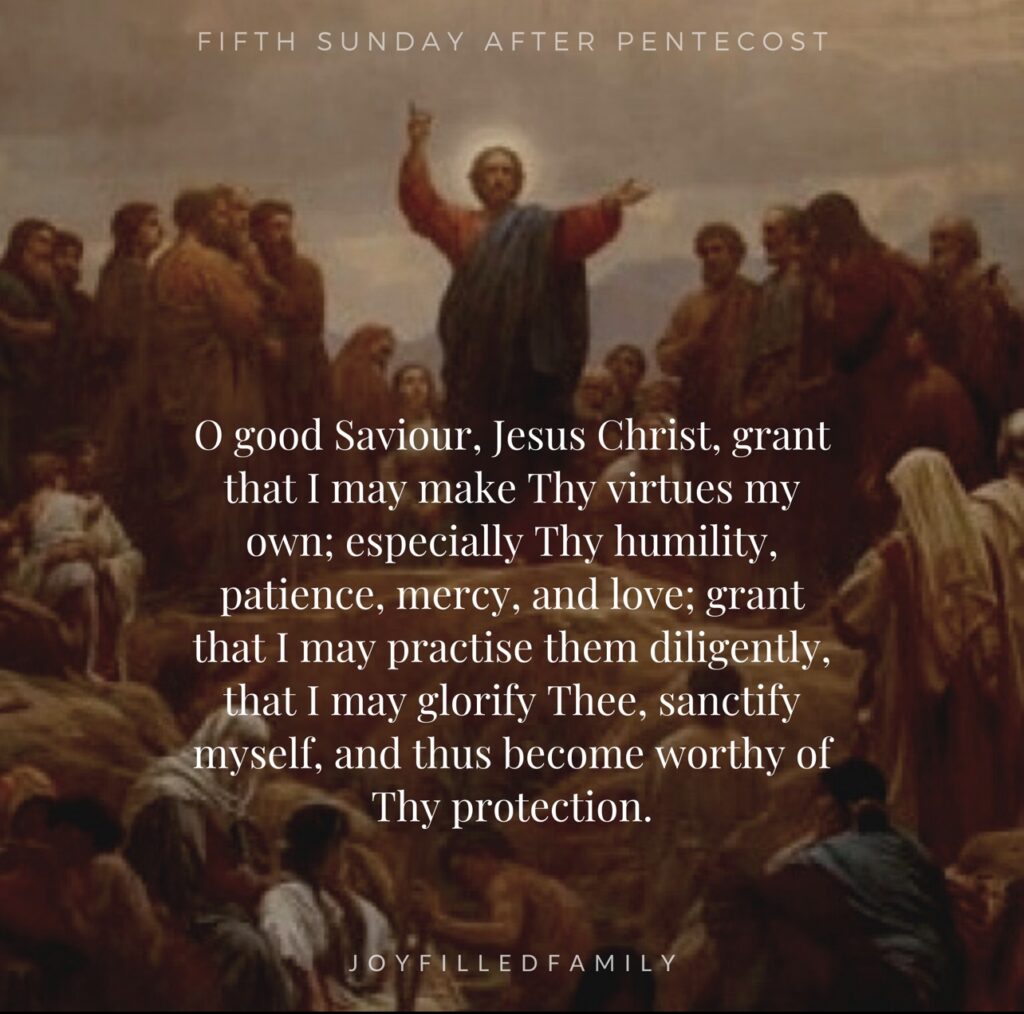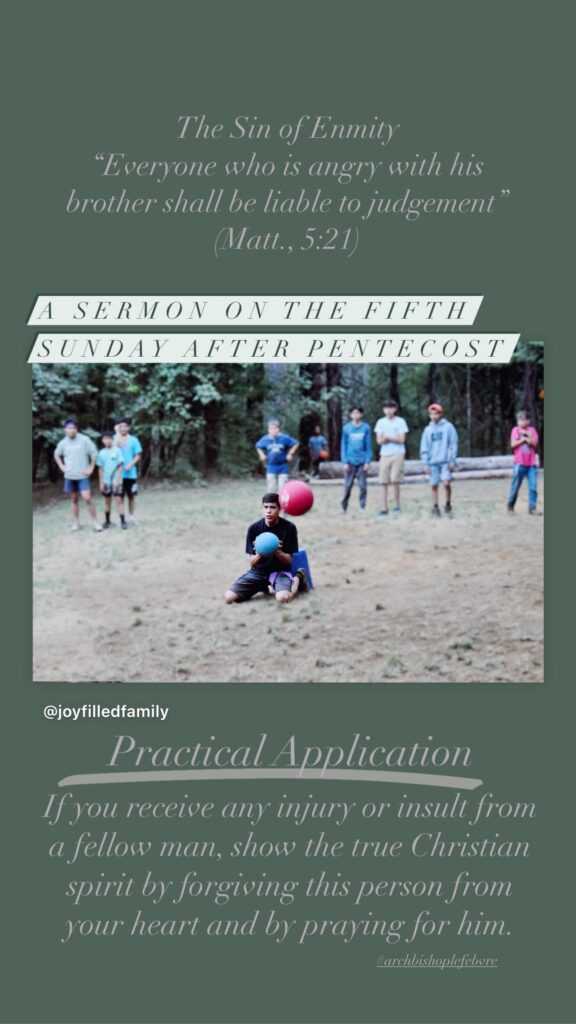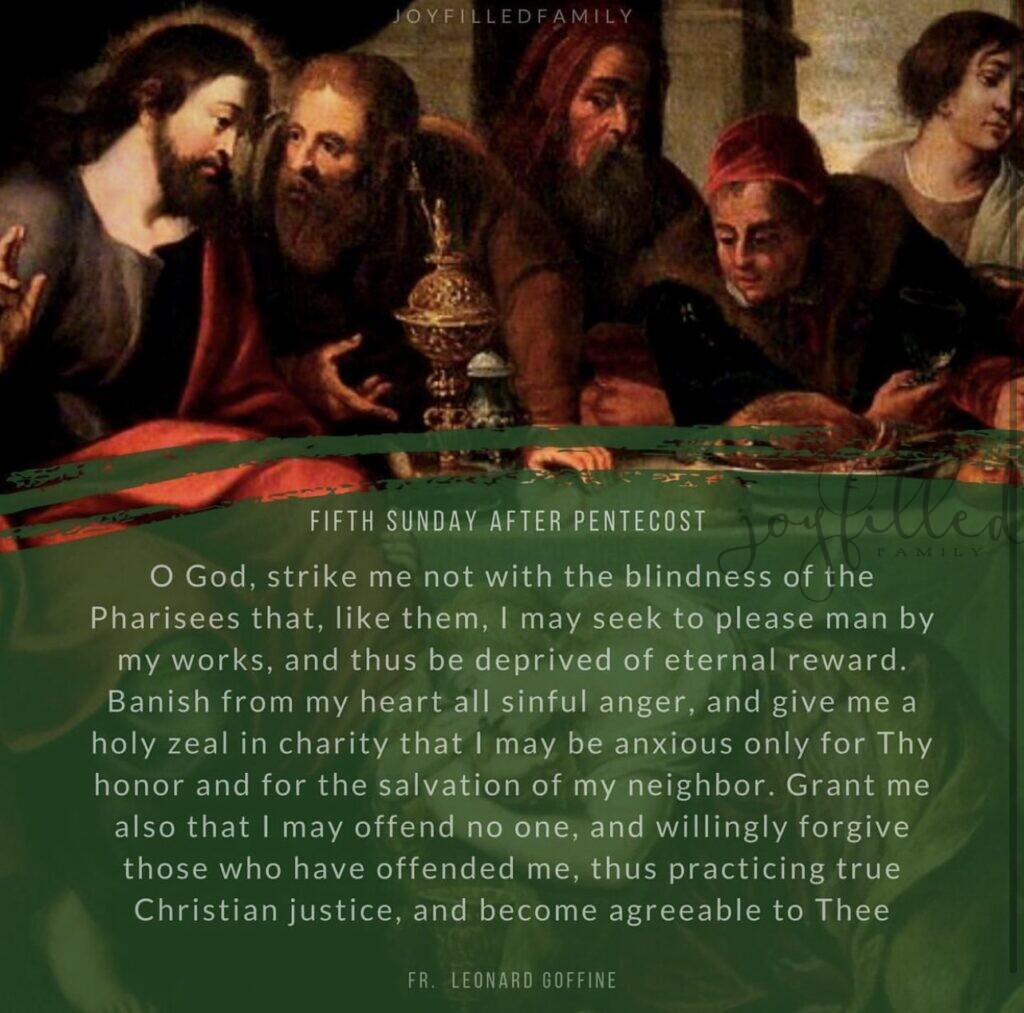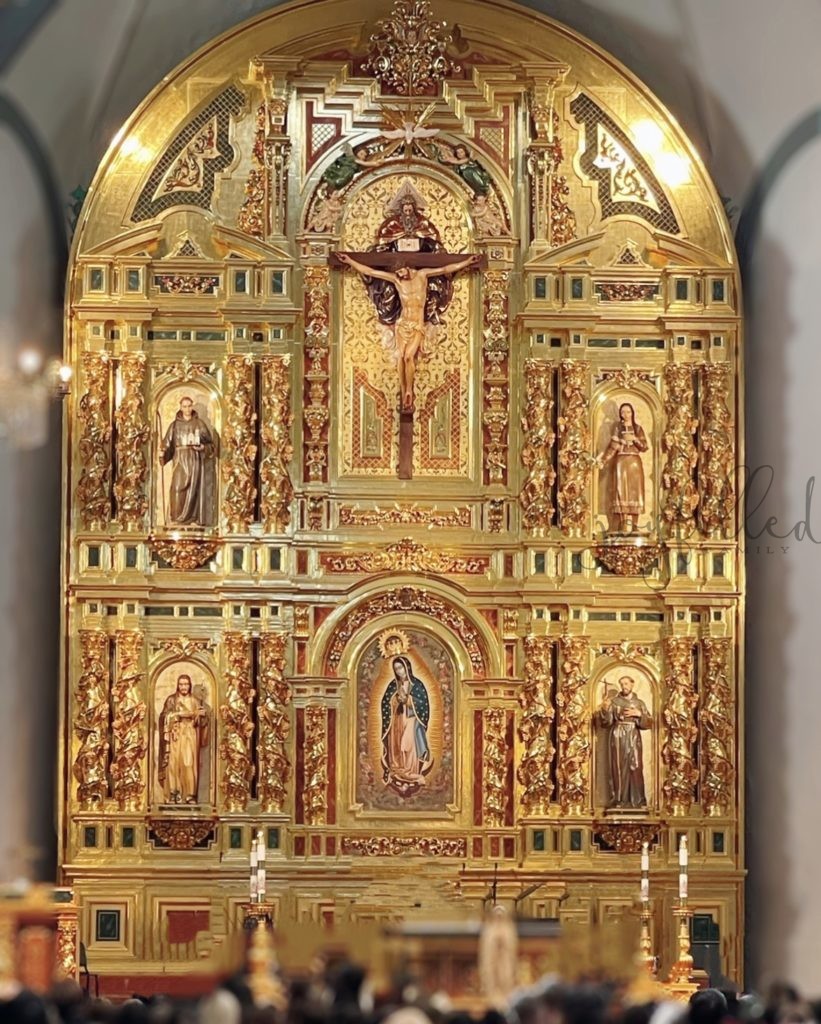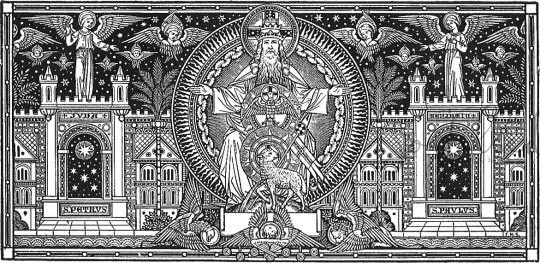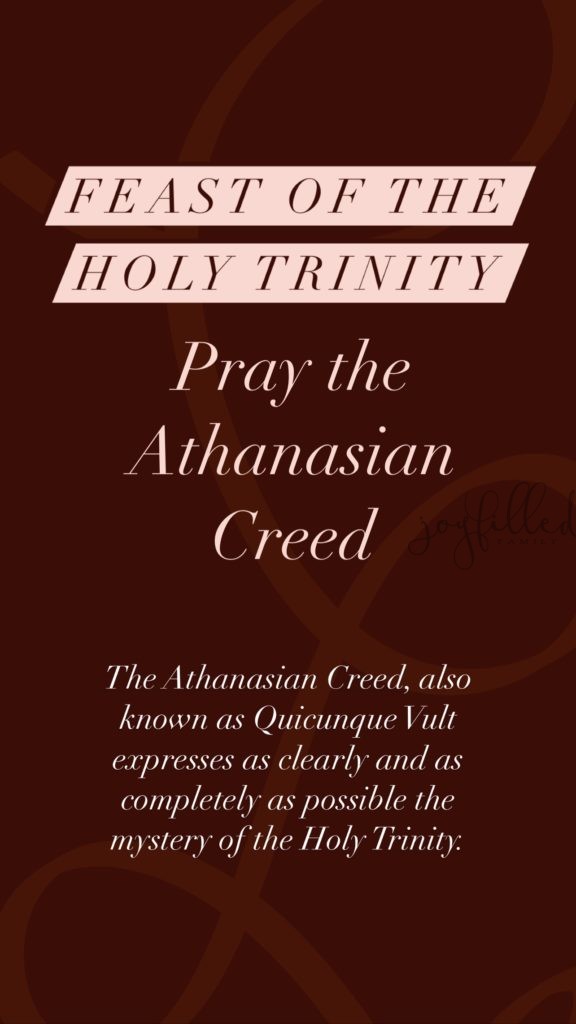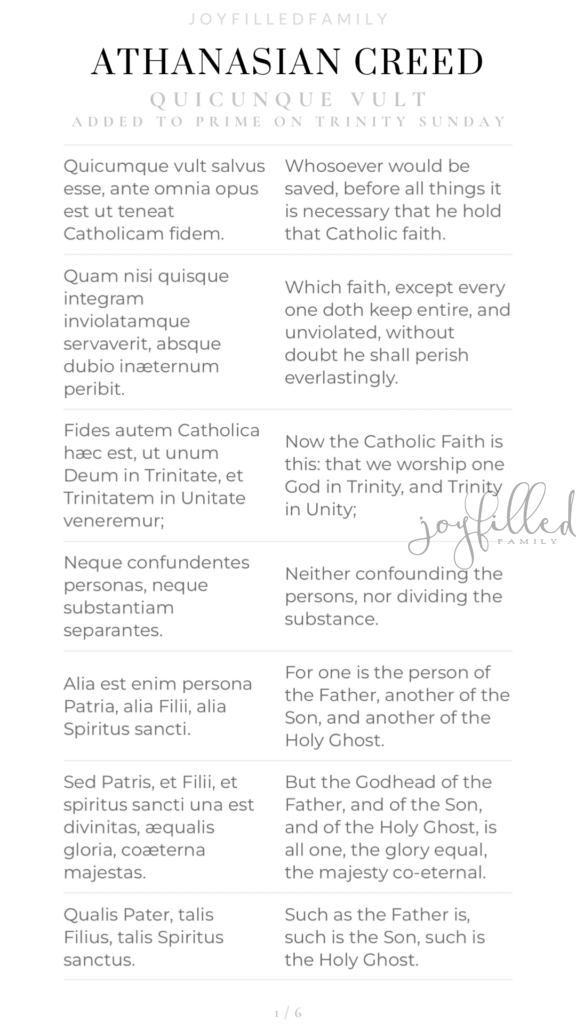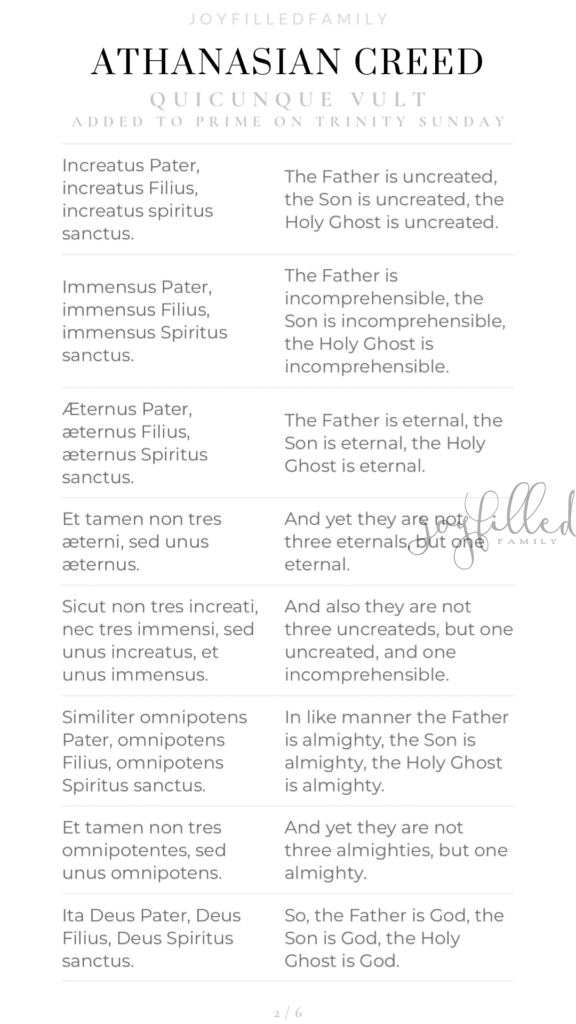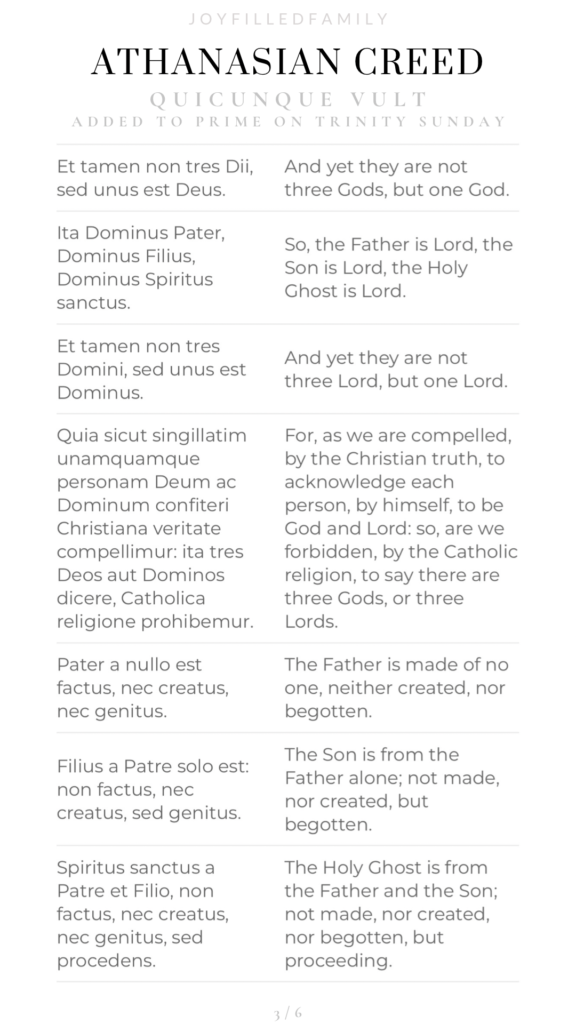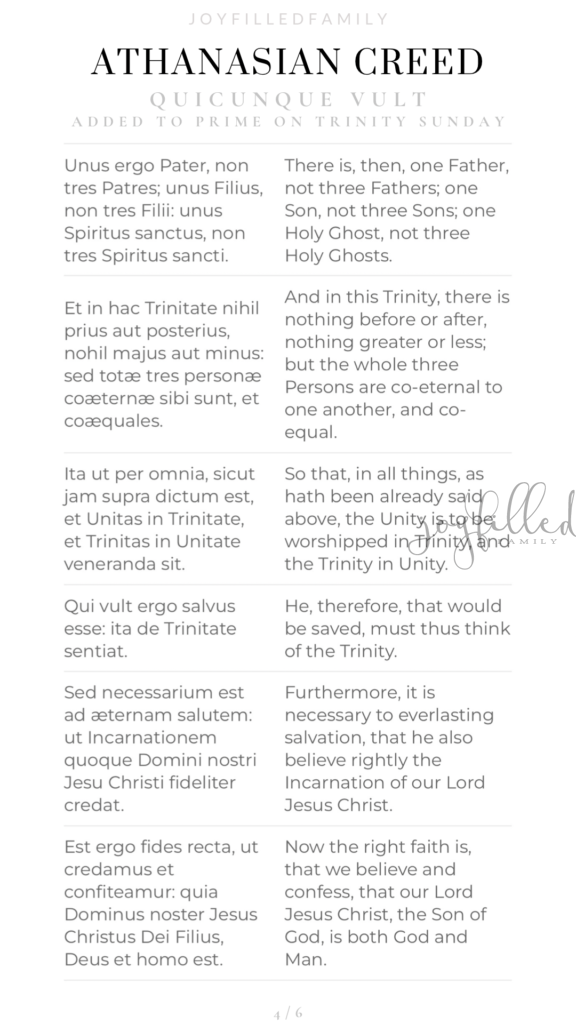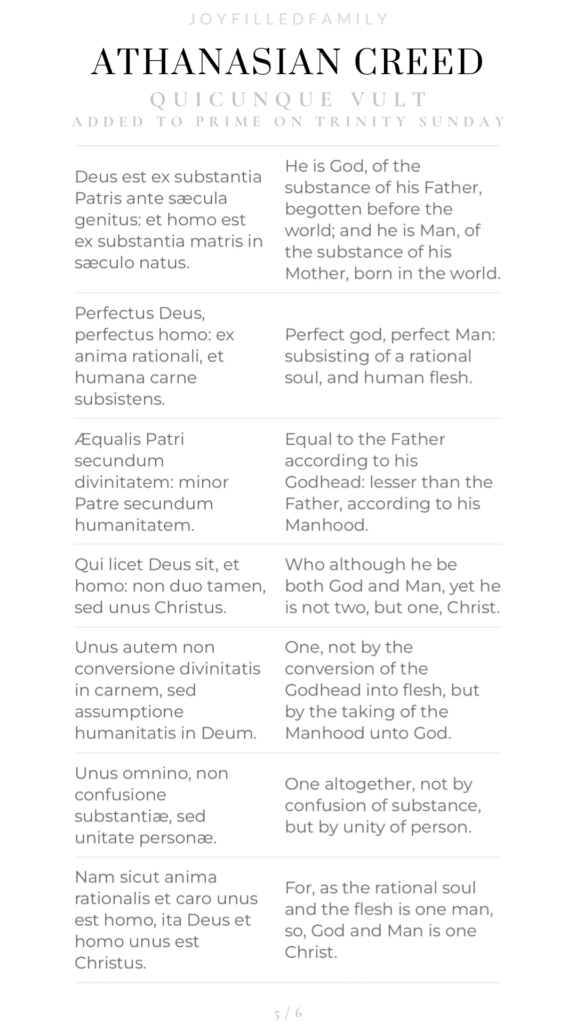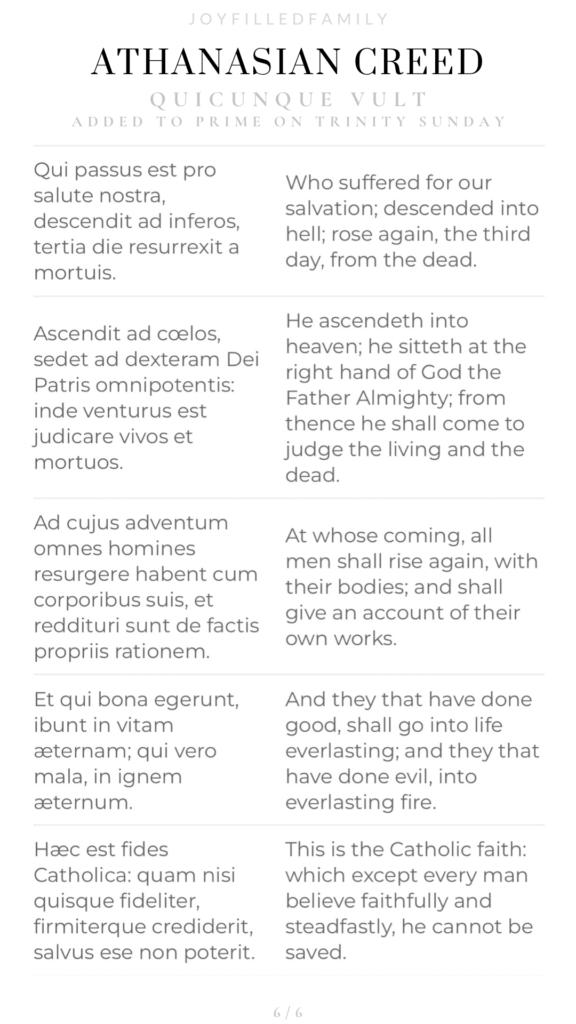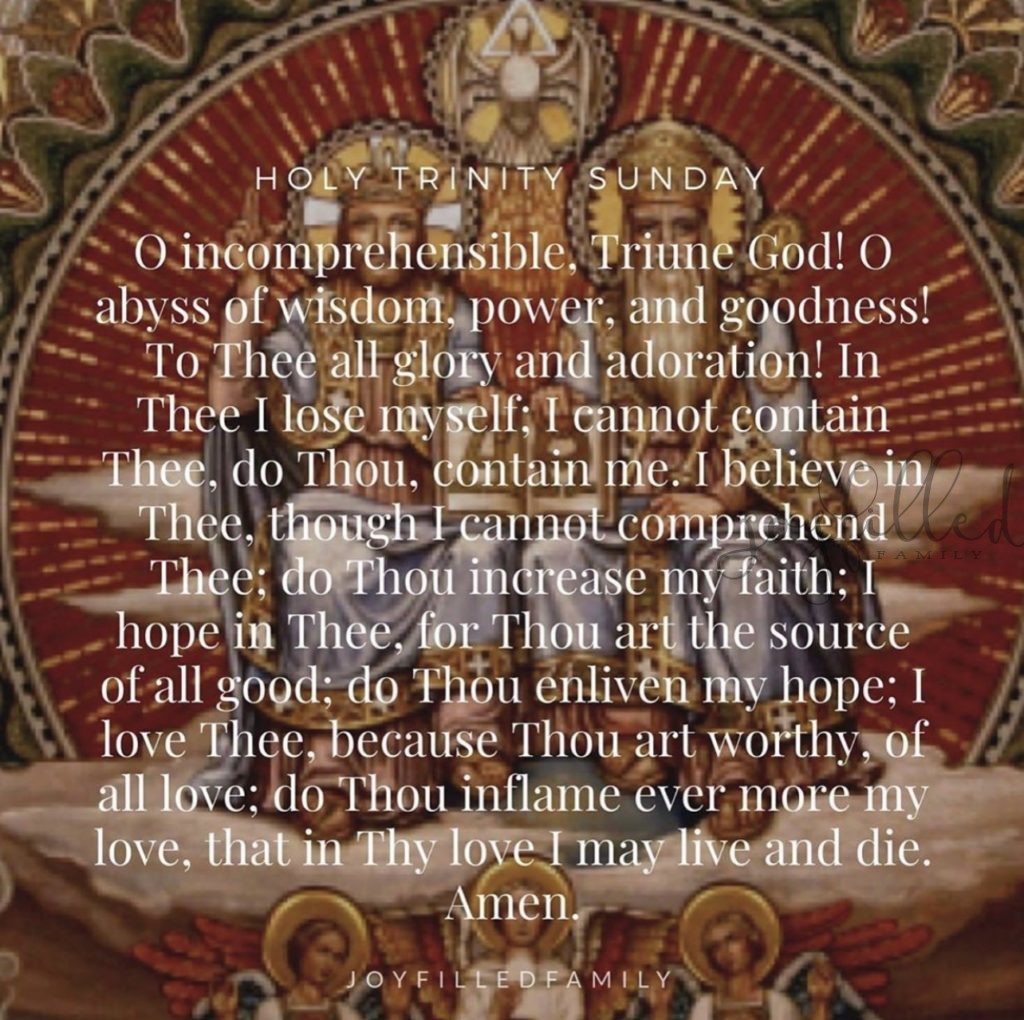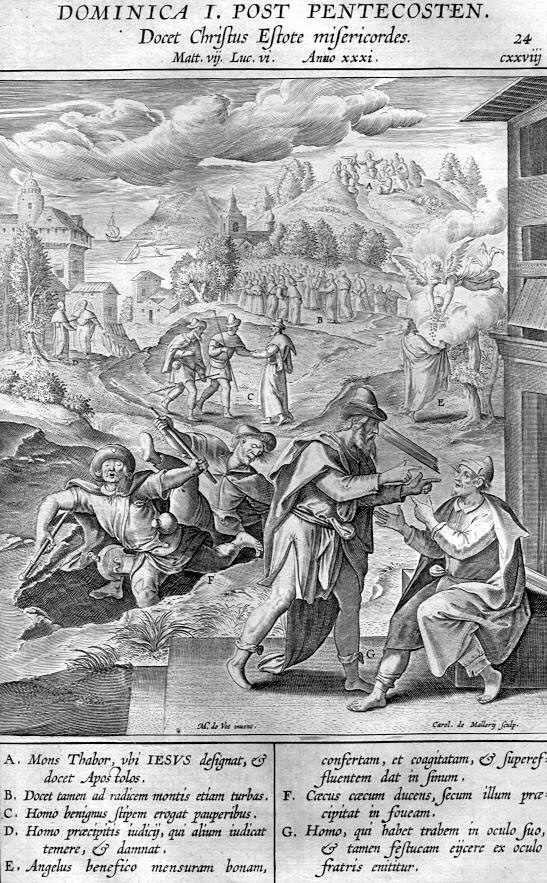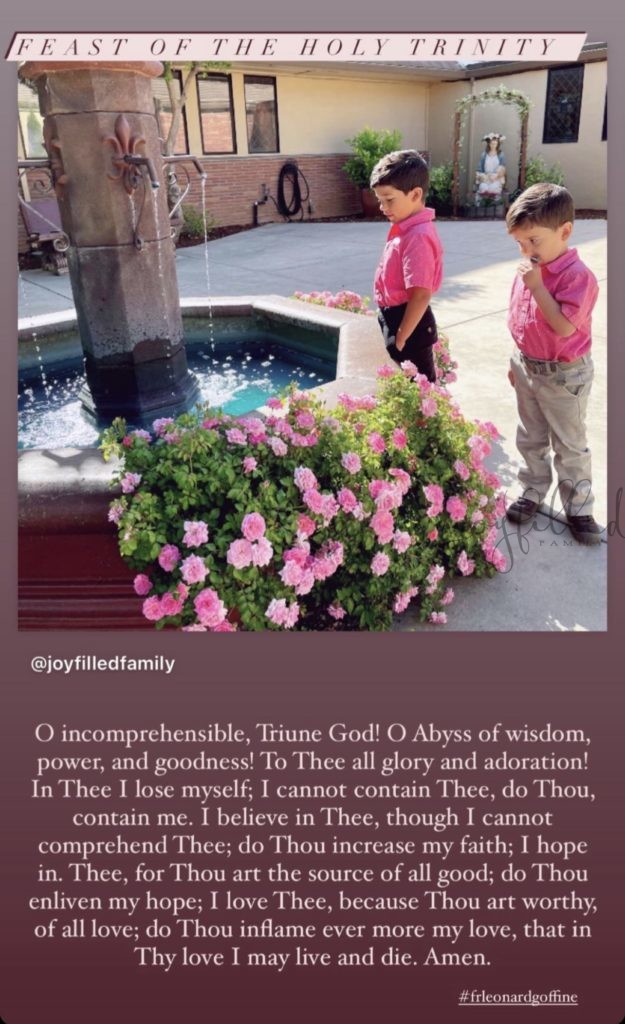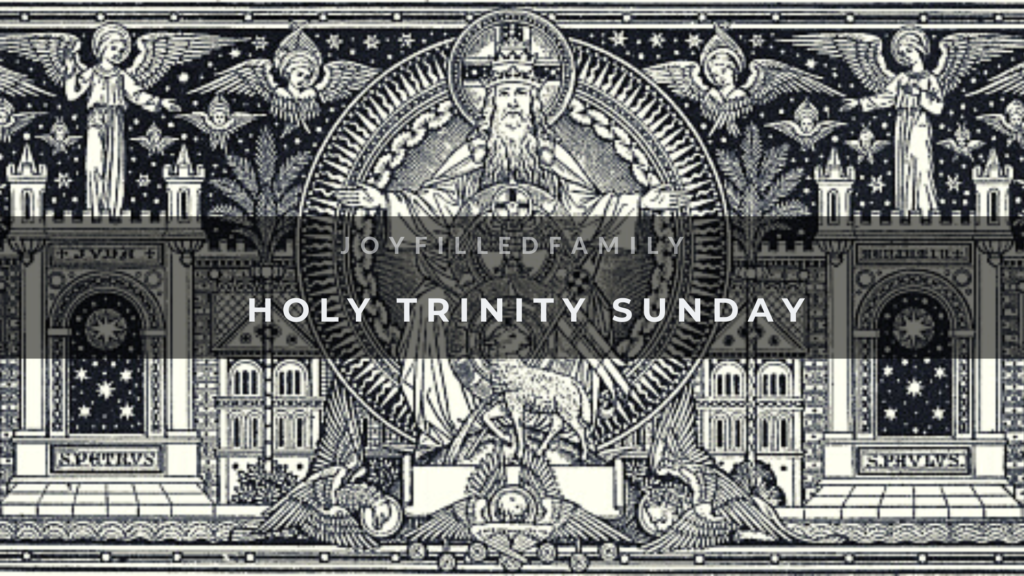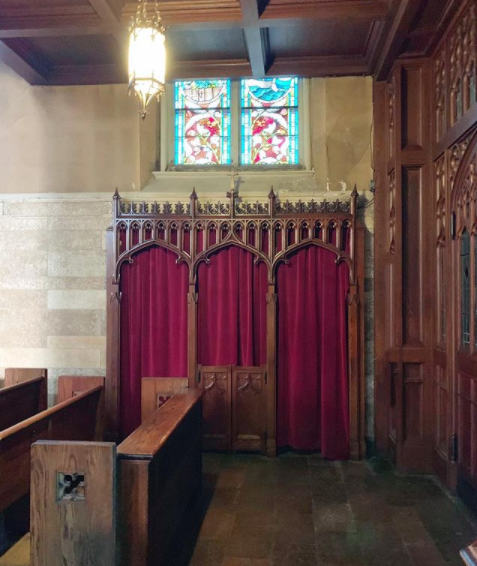Here is a doctor of the law who, tempting our Lord, asks Him questions about eternal life (Gospel – Luke X. 23-37).

But the snare that he spread for Jesus Christ shows how true were the words our Redeemer had just uttered, when He said to His Father: “Thou hast hid these things from the wise and prudent and hast revealed them to little ones.”
Consider how the demons acted with regard to the first man, for when Adam fell into sin they stripped him of all his goods and covered him with wounds. For original sin deprives man of all the gifts of grace and wounds him in his very nature. His intelligence is less alert and his will weaker, for the concupiscence which reigns in his members carries him towards evil. To make him feel his impotence—for, as St. Paul says, our sufficiency is from God (Epistle – II Cor. III. 4-9 )—Almighty God instituted the Mosaic Law which gave him the commandments that faith enabled him to fulfil, but without supplying the sacramental help we enjoy in the New Dispensation.
The Gospel gives practical proof of this in the parable of the Good Samaritan. In the face of the impotence of the priesthood of the Old Law, represented by the priest and the Levite, the Good Samaritan, that is our Lord Himself sets up a new law, different to the first and comes Himself to the help of man. Physician of our souls, He pours into our wounds the ointment of His grace, the oil of His sacraments and the wine of His Eucharist. What God has done for us, we should do for our neighbor, following the example set us by the divine Samaritan. In thanksgiving, the Gradual says: “I will bless the Lord at all times; His praise shall ever be in my mouth.”
domgasparlefebvre #domlefebvre
📸 an adventure with Father #ourladyofbattles
